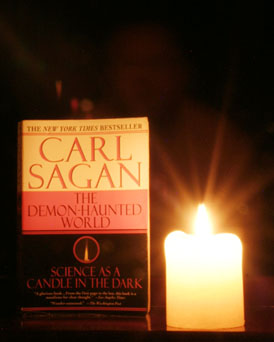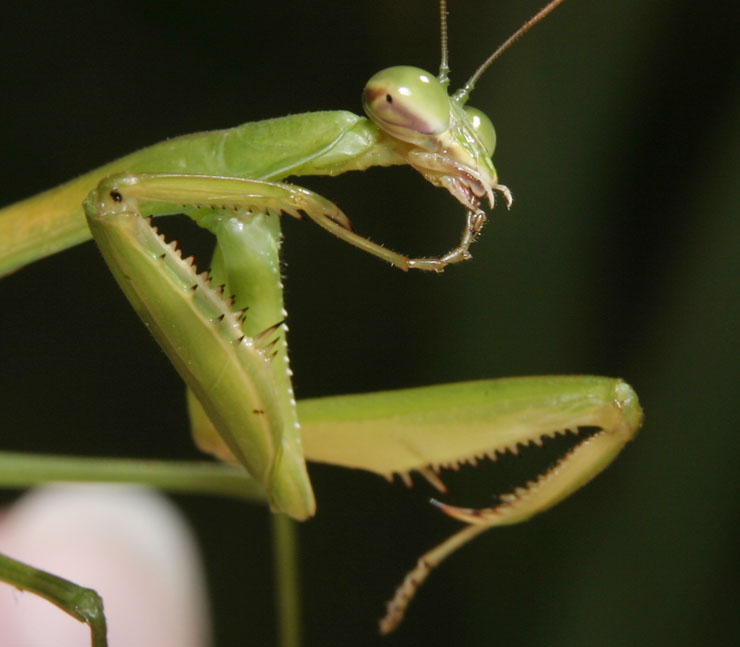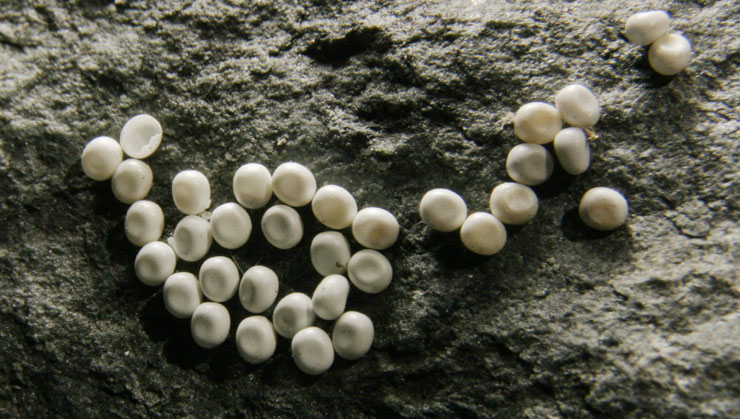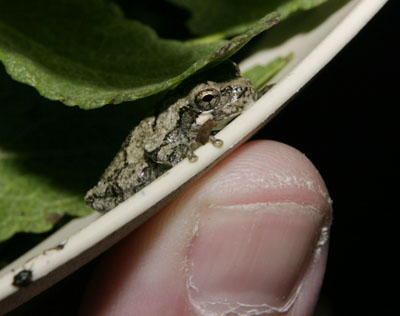This is the first of what will be only an occasional contribution, since I have planned these for a while but appear to be slow in completing them. More, however, are on the way…
 The Demon-Haunted World: Science as a Candle in the Dark is probably the most well-known of Carl Sagan’s books, and is almost considered a handbook of skepticism and critical-thinking. It’s hard to say whether this was intentional or not – Sagan was always a huge promoter of critical thinking, but by its own admission it is a science book. From my standpoint, however, it should be recommended reading for anyone with a teen reading level onward, regardless of one’s views towards science, or even their misgivings about it. In only one place does the science that Sagan enthuses over actually involve something like equations, and he’s patient enough to explain them without forcing the reader to comprehend the values – this is about James Clerk Maxwell’s sudden discovery, through what was really a mathematical experiment, of the nature of electromagnetism and its relation to light and radio waves. “Relation” being rather the wrong word here, since at that point they were found to be the same thing, a discovery that has enormous impact on everything we do today.
The Demon-Haunted World: Science as a Candle in the Dark is probably the most well-known of Carl Sagan’s books, and is almost considered a handbook of skepticism and critical-thinking. It’s hard to say whether this was intentional or not – Sagan was always a huge promoter of critical thinking, but by its own admission it is a science book. From my standpoint, however, it should be recommended reading for anyone with a teen reading level onward, regardless of one’s views towards science, or even their misgivings about it. In only one place does the science that Sagan enthuses over actually involve something like equations, and he’s patient enough to explain them without forcing the reader to comprehend the values – this is about James Clerk Maxwell’s sudden discovery, through what was really a mathematical experiment, of the nature of electromagnetism and its relation to light and radio waves. “Relation” being rather the wrong word here, since at that point they were found to be the same thing, a discovery that has enormous impact on everything we do today.
More compelling, however, is Sagan’s examination of our everyday world. He builds his cases carefully, keeping the reader captivated with concise writing as he gently steers to his target by eliminating the other choices. Sagan, especially in this book, is a humble yet enthusiastic writer, who asks more questions than he answers, yet asks the right ones, never telling the reader what must be the case yet allowing them to eliminate the other options. In this regard, he mimics one aspect of the scientific method, in that he tries to determine if any other conclusion might fit as well, if not better, which would throw the initial conclusion into doubt. In this way, science tests itself and weeds out alternative explanations.
To me, the most distinctive parts of the book are where he examines the witch hunts of Europe before the Enlightenment, chronicled through writers of that time. If, like me, you knew only of Salem during that period, these chapters will be shocking – Salem was a drop in the bucket in a time of senseless and inescapable persecution, based on a corrupt belief system and meaningless assertions. We’d like to think we know better now, but Sagan manages not to couch it in terms of past ignorance, but compares it with present assertions, demonstrating that we are not immune to such behavior unless we make the efforts to ask the hard questions and demand support for claims. Indeed, he makes direct comparisons to alien abduction accounts and the questionable methods of investigating such.
Sagan goes into great detail regarding the famous abduction case of Betty & Barney Hill, relating facts that most accounts somehow miss. These facts, far from being extraneous, have direct bearing on the reliability of the testimonies, and provide an eye-opening experience into the world of UFO investigation. It becomes evident that some conclusions are reached not through weight of the evidence, but by other means – wish fulfillment, perhaps, or pre-existing biases. And while many people find no surprise at this, Sagan takes pains throughout the book to demonstrate that such behavior does not belong to “fringe” beliefs alone.
Another fascinating read are the samples of public opinion, snippets of responses he had received in the mail following the publication of chapter excerpts in Parade magazine. If the reader is still dubious about the need for thinking skills in this modern age, this cross-section of American opinion certainly helps drive the point home. The responses from a high school classroom are particularly disturbing. It’s one thing to hear, or even believe oneself, that much of the public is ill-informed, but seeing the examples of it always has a greater impact.
It is here that he introduces what has become known as the “Baloney Detection Kit,” a list of practices and common fallacies that serve admirably to sort out the accuracy of any claim, and that form the basis of all critical thinking. It is difficult to imagine a situation where such practices would not serve a useful purpose – but there are plenty where they were, and are, desperately needed. Sagan includes a simple story in a footnote, one that demonstrates the fallacy of, as he calls it, “observational selection” – counting the hits that confirm your hypothesis, and ignoring the misses:
[From pg 214] My favorite example is this story, told about the Italian physicist Enrico Fermi, newly arrived on American shores, enlisted in the Manhattan nuclear weapons Project, and brought face-to-face in the midst of World War II with U.S. flag officers.
So-and-so is a great general, he was told.
What is the definition of a great general? Fermi characteristically asked.
I guess it’s a general who’s won many consecutive battles.
How many?
After some back and forth, they settled on five.
What fraction of American generals are great?
After some more back and forth, they settled on a few percent.But imagine, Fermi rejoined, that there is no such thing as a great general, that all armies are equally matched, and that winning a battle is purely a matter of chance. Then the chance of winning one battle is one out of two, or 1/2; two battles 1/4, three 1/8, four 1/16, and five consecutive battles 1/32 – which is about 3 percent. You would expect a few percent of American generals to win five consecutive battles – purely by chance. Now, has any of them won ten consecutive battles …?
Another striking thing about this book is the sheer number of places you can stop reading and contemplate an introduced idea. I have myself taken advantage of this with a blog post, and will likely do so again soon. Sagan is succinct, able to explain his point with clarity and without additional verbiage or redundancy, and thus covers a vast array of topics and ideas – so many that it’s impossible to do justice with a brief book review. I was struck with the thought that this could serve almost as a textbook, with work assignments or essays based on aspects of each chapter – and what a remarkable class that would be. If you are a “thinker,” this book is a buffet.
Through it all, he does indeed promote science – not as the idea of learning valences and calculating vectors, but as the practice that serves virtually all of our advances as a species. He realizes that science has a bad reputation in the US, and indeed much of the world, and suggests ways to counteract this. His own writing, the delight in discovery and the fascination with how things work and where this leads, shows that he knows it can be done, and that we all have to eliminate this idea of science as “hard.”
Towards the end of the book, he apologizes for devoting a couple of chapters to politics, but even here Sagan cannot become polarized. The reader dreading the polemic of political parties today will find themselves cringing for nothing – Sagan instead details the careful considerations and knowledgeable backgrounds of our founding fathers, most notably Thomas Jefferson, and the efforts they put into crafting the documents that govern this country. The fact that this bears no resemblance whatsoever to our current political figures is damning all by itself, with no input given or necessary by Sagan.
Carl Sagan had a couple of gifts: one of reasoned debate without rancor; and the other of boundless fascination with the natural world. Both are exemplified in this book, without ever leaving his message behind. My challenge to anyone is to simply read a chapter – any chapter. If you’re not convinced, I’ll turn in my book reviewing badge. And if your child is tackling reading at the level of Mark Twain or Edgar Allan Poe, they’re ready for this book.





















































 Sometimes, empty space is really empty, and doesn’t seem to say anything. But it does, if only, “There’s nothing around for miles.” The isolation implied by the blank water is as much a photo element as the main subject here, and provides contrast to the sharp, intense detail of the tree stump. The empty space counterbalances the stump in the photo, and the frame is actually split in half diagonally, with almost nothing but grey and white to the upper right, and all of the color and shade in the lower left. This lack of color, by the way, allows us to notice the tiny little green leaves atop the stump, where otherwise we probably could not have.
Sometimes, empty space is really empty, and doesn’t seem to say anything. But it does, if only, “There’s nothing around for miles.” The isolation implied by the blank water is as much a photo element as the main subject here, and provides contrast to the sharp, intense detail of the tree stump. The empty space counterbalances the stump in the photo, and the frame is actually split in half diagonally, with almost nothing but grey and white to the upper right, and all of the color and shade in the lower left. This lack of color, by the way, allows us to notice the tiny little green leaves atop the stump, where otherwise we probably could not have. 
 The strobes are necessary to counteract an inescapable trait of macro photography. At high magnifications (and this applies to telephoto work as well,) depth-of-field drops down very low. Depth-of-field is the range of acceptably sharp focus that extends in front of, and behind, the point you focused on. This means that if you focus on the eyes (and you’d better!) the hind end of the body may be out of focus, unless you take some steps. The main one is, use a smaller aperture like f16, which increases depth-of-field. But like everything in photography, there’s a tradeoff, and in this case it means you just reduced the amount of light coming in to the film or digital sensor. To counteract that, you can leave the shutter open longer, not recommended because you’ll either shake the camera or have your subject move during exposure, or you have to produce a lot more light – hence the strobes. The bright light that they put out, however, can cause harsh shadows and let the background, if it’s significantly behind your subject, fall into darkness. In this tight crop, note that the eyestalks of this snail are sharp, but the shell is already well out of focus – note also the shadows that give shape and depth to the snail and the tree.
The strobes are necessary to counteract an inescapable trait of macro photography. At high magnifications (and this applies to telephoto work as well,) depth-of-field drops down very low. Depth-of-field is the range of acceptably sharp focus that extends in front of, and behind, the point you focused on. This means that if you focus on the eyes (and you’d better!) the hind end of the body may be out of focus, unless you take some steps. The main one is, use a smaller aperture like f16, which increases depth-of-field. But like everything in photography, there’s a tradeoff, and in this case it means you just reduced the amount of light coming in to the film or digital sensor. To counteract that, you can leave the shutter open longer, not recommended because you’ll either shake the camera or have your subject move during exposure, or you have to produce a lot more light – hence the strobes. The bright light that they put out, however, can cause harsh shadows and let the background, if it’s significantly behind your subject, fall into darkness. In this tight crop, note that the eyestalks of this snail are sharp, but the shell is already well out of focus – note also the shadows that give shape and depth to the snail and the tree.
 The second way is with extension tubes, which are much simpler than their price seems to indicate – they’re simply empty tubes that extend the lens further away from the camera. You can see the tube here between the camera and the lens, flanked by silver edges. They work exactly like moving a projector further back from the wall – the image gets bigger. It also gets darker, because the lens is optimized for a certain distance from the film/sensor plane and moving it further back diffuses it more. Extension tubes are only as good as the lens mounted to them, and here’s where I made a pleasing discovery. When my dedicated macro lens started performing sporadically and needed repair, I tried a general purpose lens, my Sigma 24-135 zoom, on an extension tube, and it performed better than any expectations. This will not always be the case, and sometimes you won’t get sharp results with tubes, but they’re also typically 1/4 the cost of a dedicated macro lens. You will lose the ability to focus at distances, but this isn’t much of an issue since they snap on and off in seconds. There is no reason to spring for expensive ones – the inexpensive set of three Kenko tubes I’ve been using for the past decade still appear like new and perform without issue. However, I will say that dedicated macro lenses are the best performers and worth the money, though you don’t always have to get the OEM models to get great results.
The second way is with extension tubes, which are much simpler than their price seems to indicate – they’re simply empty tubes that extend the lens further away from the camera. You can see the tube here between the camera and the lens, flanked by silver edges. They work exactly like moving a projector further back from the wall – the image gets bigger. It also gets darker, because the lens is optimized for a certain distance from the film/sensor plane and moving it further back diffuses it more. Extension tubes are only as good as the lens mounted to them, and here’s where I made a pleasing discovery. When my dedicated macro lens started performing sporadically and needed repair, I tried a general purpose lens, my Sigma 24-135 zoom, on an extension tube, and it performed better than any expectations. This will not always be the case, and sometimes you won’t get sharp results with tubes, but they’re also typically 1/4 the cost of a dedicated macro lens. You will lose the ability to focus at distances, but this isn’t much of an issue since they snap on and off in seconds. There is no reason to spring for expensive ones – the inexpensive set of three Kenko tubes I’ve been using for the past decade still appear like new and perform without issue. However, I will say that dedicated macro lenses are the best performers and worth the money, though you don’t always have to get the OEM models to get great results. And finally, one other little contraption that I made myself. This is a softbox strobe extension that positions the light directly over my macro subject, but diffuses the light to appear less like the spotlight effect that the strobe produces by itself. It allows softer, ambient-appearing light to be right over a subject only centimeters in front of the lens, and really is a reflective tube, a reflecting plate at an angle within the drum (a pudding container,) and a piece of plastic grocery bag as the diffuser. You can tell me how well it works by seeing both photos
And finally, one other little contraption that I made myself. This is a softbox strobe extension that positions the light directly over my macro subject, but diffuses the light to appear less like the spotlight effect that the strobe produces by itself. It allows softer, ambient-appearing light to be right over a subject only centimeters in front of the lens, and really is a reflective tube, a reflecting plate at an angle within the drum (a pudding container,) and a piece of plastic grocery bag as the diffuser. You can tell me how well it works by seeing both photos 
 And now we see a different crop. More of the waves below the pelican become visible, and these have an even rougher feel, and slightly confusing. Now we know we’re not dealing with a rock underneath, but the distinct shapes almost seem recognizable, and the viewer may take a moment to frown at them before deciding they really are just waves frozen in time. But in this crop, they have become an element of the scene, almost a subject in themselves.
And now we see a different crop. More of the waves below the pelican become visible, and these have an even rougher feel, and slightly confusing. Now we know we’re not dealing with a rock underneath, but the distinct shapes almost seem recognizable, and the viewer may take a moment to frown at them before deciding they really are just waves frozen in time. But in this crop, they have become an element of the scene, almost a subject in themselves.



 Living on the edge of the woods is a good thing. For some reason, a small herd of White-tailed Deer (Odocoileus virginianus) has taken to visiting roughly around 2:30 PM some days, and when the temperature is cool enough that I can leave the window open, I can hear them foraging. This one was a little surprised to see someone appear in the doorway so close by, but I wasn’t moving enough to spook her off, and she provided several nice portrait poses.
Living on the edge of the woods is a good thing. For some reason, a small herd of White-tailed Deer (Odocoileus virginianus) has taken to visiting roughly around 2:30 PM some days, and when the temperature is cool enough that I can leave the window open, I can hear them foraging. This one was a little surprised to see someone appear in the doorway so close by, but I wasn’t moving enough to spook her off, and she provided several nice portrait poses. Treefrogs have distinctive toes, ending in a broad and moist pad that lets them cling to vertical surfaces effortlessly. In fact, it can be a little startling to see them jump against a wall and remain there instead of bouncing off. This trait lets them forage for food high in the tree canopies without needing claws, and also lets them scale rocks, leaves, and yes, even people that attempt to grab them. You can get an idea of the size of this specimen by my ugly thumb, included in this shot for scale. I normally see them much larger than this.
Treefrogs have distinctive toes, ending in a broad and moist pad that lets them cling to vertical surfaces effortlessly. In fact, it can be a little startling to see them jump against a wall and remain there instead of bouncing off. This trait lets them forage for food high in the tree canopies without needing claws, and also lets them scale rocks, leaves, and yes, even people that attempt to grab them. You can get an idea of the size of this specimen by my ugly thumb, included in this shot for scale. I normally see them much larger than this.